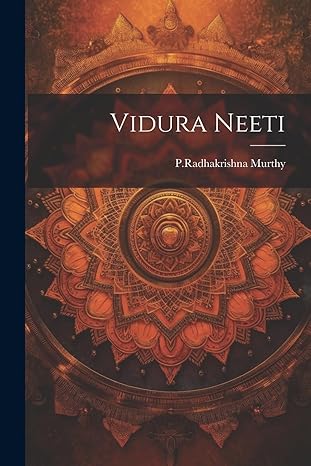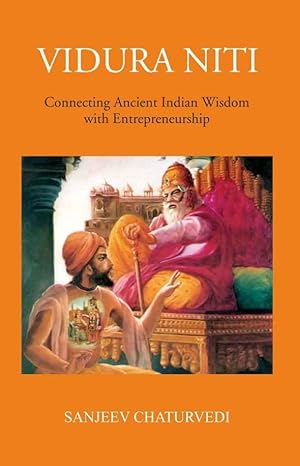Vidura Niti, a part of the Mahabharata, contains the wisdom and teachings of Vidura, a wise statesman and the half-brother of Dhritarashtra. Vidura’s counsel on ethics, leadership, and governance is timeless and applicable even today. Here are 50 key lessons from Vidura Niti:

On Leadership and Governance
1. A king should always listen to wise counsel.
2. A ruler must act with justice and fairness.
3. The welfare of the subjects should be the highest priority for a ruler.
4. A wise king surrounds himself with honest and capable advisors.
5. A leader should be impartial and free from prejudice.
6. A ruler should avoid anger and be patient in decision-making.
7. Greed and deceit lead to a ruler’s downfall.
8. A king must protect his kingdom with vigilance and wisdom.
9. The strength of a kingdom lies in the unity of its people.
10. A ruler should be knowledgeable and well-versed in statecraft.
On Ethics and Morality
11. Righteousness (Dharma) is the foundation of all success.
12. Truthfulness is a virtue that should never be compromised.
13. One should always speak kindly and avoid harsh words.
14. Avoiding sin and unethical behavior leads to a peaceful life.
15. A person who controls their senses is wise and respected.
16. Virtue is more important than wealth or power.
17. Pride and arrogance lead to one’s downfall.
18. Humility and modesty are the marks of a true wise person.
19. Honesty in actions and intentions is crucial for a good life.
20. Forgiveness is a virtue that elevates a person’s character.

On Wealth and Prosperity
21. Wealth should be earned through righteous means.
22. The accumulation of wealth should not lead to greed.
23. Wealth, when used wisely, brings happiness and prosperity.
24. Charity should be practiced regularly without expecting anything in return.
25. A wealthy person should use their resources to help others.
26. Hoarding wealth without using it for good leads to misery.
27. Wealth that is ill-gotten will never bring lasting happiness.
28. Sharing wealth with others brings contentment and peace.
29. Financial stability is important, but it should not come at the cost of ethics.
30. One should avoid extravagance and live within their means.
On Relationships and Society
31. Friendship should be based on trust and loyalty.
32. One should avoid the company of dishonest and evil-minded people.
33. Respecting elders and their wisdom is a sign of good character.
34. A true friend is one who supports you in times of need.
35. Betrayal of trust in relationships leads to lasting damage.
36. Family ties should be nurtured with love and care.
37. Do not associate with people who have a bad reputation.
38. Treat everyone with respect, regardless of their status.
39. Help those in need, but do not let others take advantage of you.
40. One should be careful in choosing friends and associates.
On Personal Conduct and Character
41. Self-discipline is the key to a successful life.
42. Control over desires leads to inner peace and happiness.
43. One should always strive for self-improvement.
44. Patience and perseverance are essential for achieving goals.
45. Avoiding anger and practicing self-control is a sign of wisdom.
46. A person’s character is reflected in their actions.
47. One should be content with what they have and avoid envy.
48. Gratitude for what one has brings happiness.
49. Kindness and compassion towards others elevate one’s soul.
50. A virtuous person is respected and honored by all.
These lessons from Vidura Niti provide a comprehensive guide to living a righteous and fulfilling life, emphasizing the importance of ethical behavior, wise leadership, and personal integrity.


